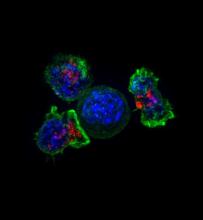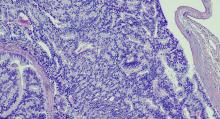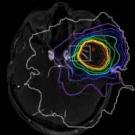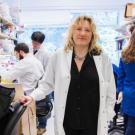News
Drug for Fungal Infections in Lung Transplant Recipients Increases Risk for Skin Cancer, Even Death
Voriconazole, a prescription drug commonly used to treat fungal infections in lung transplant recipients, significantly increases the risk for skin cancer and even death, according to a new study by UC San Francisco researchers. The team recommends physicians consider patient-specific factors that
DNA-Guided 3-D Printing of Human Tissue is Unveiled
A UCSF-led team has developed a technique to build tiny models of human tissues, called organoids, more precisely than ever before using a process that turns human cells into a biological equivalent of LEGO bricks. These mini-tissues in a dish can be used to study how particular structural features
Mammary Gland Is Shaped by Adaptive Immune System During Development
In experiments with mouse tissue, UC San Francisco researchers have discovered that the adaptive immune system, generally associated with fighting infections, plays an active role in guiding the normal development of mammary glands, the only organs--in female humans as well as mice--that develop
Survivors of Childhood Cancer Have High-Risk of Recurrent Stroke
Most people assume strokes only happen to octogenarians, but recent evidence suggests that survivors of childhood cancer have a high risk of suffering a stroke at a surprisingly young age. A new study from UC San Francisco's Pediatric Brain Center shows that childhood cancer survivors suffering one
Emmanuelle Passegué: Making Better Blood
Emmanuelle Passegué’s passion for blood is focused on rejuvenation and longer life. This may sound like something out of a vampire story, but her work is rooted in a different kind of mystery: one that could hold the key to how well we age and respond to diseases. “I love the mystery,” she says of
Tool Boosts Accuracy in Assessing Breast Cancer Risk
A national risk model that gauges a woman’s chance of developing breast cancer has been refined to give a more accurate assessment. The revised figures, based on data from more than one million patients, reveal a 300 percent increase in a subset of women whose five-year risk is estimated at 3
Common Class of 'Channel Blocking' Drugs May Find a Role in Cancer Therapy
Drugs called ion channel blockers, which are commonly used to treat cardiac, neurological, and psychiatric disorders, might prove useful in cancer therapy, according to research findings in fruit flies and mice by UC San Francisco scientists that led to unconventional treatment of a case of






